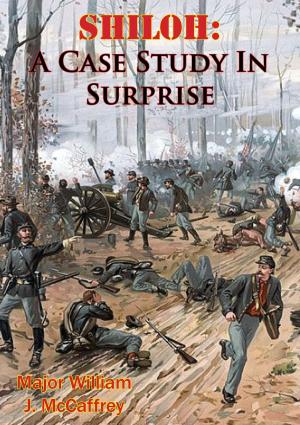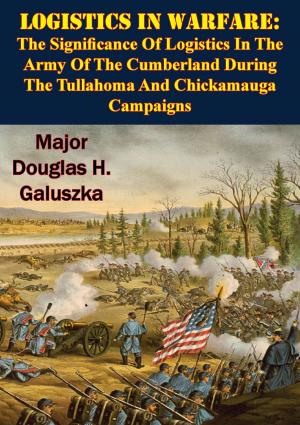Blame Game: Federal Intelligence Operations During The Chickamauga Campaign
Nonfiction, History, Modern, 19th Century, Americas, United States, Civil War Period (1850-1877), Military| Author: | Major Paul A. Shelton | ISBN: | 9781782896166 |
| Publisher: | Golden Springs Publishing | Publication: | August 15, 2014 |
| Imprint: | Golden Springs Publishing | Language: | English |
| Author: | Major Paul A. Shelton |
| ISBN: | 9781782896166 |
| Publisher: | Golden Springs Publishing |
| Publication: | August 15, 2014 |
| Imprint: | Golden Springs Publishing |
| Language: | English |
This thesis examines intelligence operations conducted by Major General Rosecrans’ Army of the Cumberland during the initial phases of the Chickamauga Campaign (11 August to 16 September 1863). The thesis methodology is a detailed analysis of all intelligence reports received by the headquarters and a detailed examination of all outgoing correspondence from the headquarters intended to identify the analytical process used and the impact of intelligence on Rosecrans’ decision making during the campaign. The record shows that contrary to popular historical opinion there was significant intelligence available indicating the probable Confederate course of action. General Rosecrans and his staff actively discounted information that did not conform to their pre-conceived expectation or template of the enemy with tragic results for the Army of the Cumberland. This thesis highlights several timeless lessons of relevance to the modern military officer: the importance of focused intelligence collection operations, the requirement for clear thinking and disciplined analysis of intelligence reporting, the dangers of over-confidence and preconceptions, the hazard of focusing on one’s plan instead of the enemy, and the importance of avoiding “group-thinking” among a staff.
This thesis examines intelligence operations conducted by Major General Rosecrans’ Army of the Cumberland during the initial phases of the Chickamauga Campaign (11 August to 16 September 1863). The thesis methodology is a detailed analysis of all intelligence reports received by the headquarters and a detailed examination of all outgoing correspondence from the headquarters intended to identify the analytical process used and the impact of intelligence on Rosecrans’ decision making during the campaign. The record shows that contrary to popular historical opinion there was significant intelligence available indicating the probable Confederate course of action. General Rosecrans and his staff actively discounted information that did not conform to their pre-conceived expectation or template of the enemy with tragic results for the Army of the Cumberland. This thesis highlights several timeless lessons of relevance to the modern military officer: the importance of focused intelligence collection operations, the requirement for clear thinking and disciplined analysis of intelligence reporting, the dangers of over-confidence and preconceptions, the hazard of focusing on one’s plan instead of the enemy, and the importance of avoiding “group-thinking” among a staff.

![Cover of the book The War Of The American Revolution: Narrative, Chronology, And Bibliography [Illustrated Edition] by Major Paul A. Shelton](https://www.kuoky.com/images/2014/august/300x300/9781782896456-bGDt_300x.jpg)



![Cover of the book Staff Ride Guide - The Battle Of First Bull Run [Illustrated Edition] by Major Paul A. Shelton](https://www.kuoky.com/images/2014/august/300x300/9781782894599-MCut_300x.jpg)






![Cover of the book Rails To Oblivion: The Decline Of Confederate Railroads In The Civil War [Illustrated Edition] by Major Paul A. Shelton](https://www.kuoky.com/images/2014/august/300x300/9781782895701-yNx1_300x.jpg)

![Cover of the book Co. Aytch Maury Grays, First Tennessee Regiment Or, A Side Show Of The Big Show [Illustrated Edition] by Major Paul A. Shelton](https://www.kuoky.com/images/2015/november/300x300/9781786251176-VTnK_300x.jpg)
